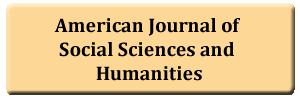Case study of the identification of gifted students in an independent school in Sydney’s western suburbs: What is working, what needs improvement, and what could change look like
DOI:
https://doi.org/10.55284/ajel.v9i2.1248Keywords:
Ability, Assessment, Education, Gifted identification, Gifted programming, Secondary school.Abstract
This case study presents a report of the identification processes for gifted students at an independent school in western Sydney. This study aims to provide some insights into the efficacy of the current identification methods and the perceived support for the identification of gifted students across the school leadership. The findings are informed by the analysis of students’ ability and achievement tests over several years and semi-structured interviews with key stakeholders in the school’s leadership team. This methodology underpins the data collection appropriate for this research. Key findings highlight the challenges of providing and maintaining a consistent, robust policy that allows for rigorous identification and the reliance on ad hoc recommendations and limited data points. It was also noted that although there was a paucity of ability testing, empirical data did inform student allocation to academic classes associated with high academic performance. It was also found that the attitudes among the school leadership were positive, and they acknowledged a need for change. The report recommends that the school expand its procedures for identifying gifted students and support this with a formalized, clear, and accessible policy. This would ensure a more systematic and reliable approach to recognizing and nurturing gifted students, ultimately enhancing their educational experience.



